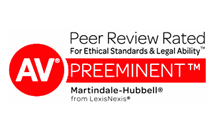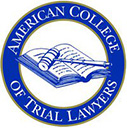Johnson & Johnson Must Pay $2.5 Million in Risperdal Case
A federal judge has ordered Johnson & Johnson to pay $2.5 million for failing to warn of a link between gynecomastia and the drug Risperdal. The lawsuit involved the family of an autistic boy who took Risperdal and later developed large amounts of breast tissue. According to a Wall Street Journal report, Johnson & Johnson knew of the side effect, but failed to report it to the Food and Drug Administration (FDA).
Risperdal and Its Uses
The FDA states that Risperdal is officially prescribed for mental health disorders such as bipolar disorder, schizophrenia, and the irritability frequently associated with autism. In recent years, doctors have also prescribed the drug off-label for ADHD, post-traumatic stress disorder, and even insomnia. The FDA has published several warnings about Risperdal’s side effects, including hyperprolactinemia, which can lead to a hormone imbalance that causes the development of breast tissue in males a condition known as gynecomastia.
Risperdal Lawsuits
This most recent Risperdal lawsuit is important, as it is the first of its kind to allege that Johnson & Johnson deliberately concealed its knowledge of Risperdal’s link to gynecomastia. The company has previously settled other Risperdal cases, including a 2012 case that resolved for an unknown amount. Johnson & Johnson was also ordered to pay $2.2 billion in both criminal and civil penalties for unlawfully marketing Risperdal to children and the elderly.
The Wall Street Journal reports that there are currently around 1,200 Risperdal lawsuits pending against Johnson & Johnson, many of which allege that the company knew of this negative, dangerous side effect and actively hid it.
Iowa Personal Injury Law Firm
If you have been injured by Risperdal or another prescription drug, it’s important to speak to an attorney as soon as possible. Contact Attorney Ed Keane today at (712) 234-3088 to discuss your case.
This website has been prepared by Keane Law Firm for informational purposes only and does not, and is not intended to, constitute legal advice. The information is not provided in the course of an attorney-client relationship and is not intended to substitute for legal advice from an attorney licensed in your jurisdiction.




